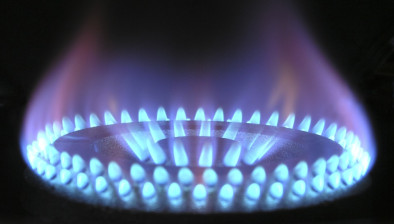Competition watchdog considers regulation for district heat networks
 Greater protection for customers could be on the way after an interim report from the Competition and Markets Authority (CMA) suggested that consumers in the district heating market are not getting value for money.
Greater protection for customers could be on the way after an interim report from the Competition and Markets Authority (CMA) suggested that consumers in the district heating market are not getting value for money.
The CMA study – which began in December – set out to establish whether heat network customers were getting a good deal in areas such as price, quality and service levels.
It has found that, for many, heat networks offer prices which are the same or lower than people on a gas or electricity tariff and have comparable levels of customer service.
But some customers – mainly those living in privately owned or rented properties – pay more for their heat through a heat network and, across the board, heat network customers aren’t getting the same levels of protection that gas and electricity customers receive.
The study found three main areas of concern:
To address these issues – and given the expected expansion in the market – the CMA’s provisional view is that the sector should be regulated. This will mean:
Senior director Rachel Merelie said: “Heat networks can play an important role in cutting carbon emissions and keeping down energy bills, but some customers are not getting a good deal for this essential service.
“There is currently no regulator with responsibility for heat networks, so customers do not automatically benefit from the rights and protections that gas and electricity customers receive.
“Our current view is that regulation is now needed, to ensure that heat network customers receive equivalent levels of protection to gas and electricity customers.”
Given that some of the recommendations would require primary legislation, the CMA is working closely with the UK government as well as the Scottish and Welsh governments to develop its recommendations.
Citizens Advice Scotland said up to 40,000 Scottish households could benefit from the report.
The charity’s consumer spokesman Sam Ghibaldan added: “Citizens Advice Scotland welcomes today’s CMA report. Our role is to stand up for fairness for all consumers in Scotland, and to provide them with high quality advice and support in solving their problems. This includes helping provide fair and affordable access to domestic heating.
“The CMA’s provisional conclusion that district heating should be regulated is good news for the 40,000 households in Scotland that could be connected to heat networks by 2020. Last year we recommended that heat networks in Scotland should be licensed, and we are delighted that the CMA are considering a similar approach.
“District Heat consumers currently lack the protections that gas and electricity consumers have, and to ensure that they have confidence in the heat market, and that it grows in line with Scottish and UK Government targets, it is critical that consistent protections in areas such as billing, metering, complaints and pricing are put in place, as set out in our research.
“We will continue to engage with the CMA to ensure strong protection for heat consumers.”
The CMA is consulting on the recommendations until 31 May 2018 and will publish a final report in the summer.







